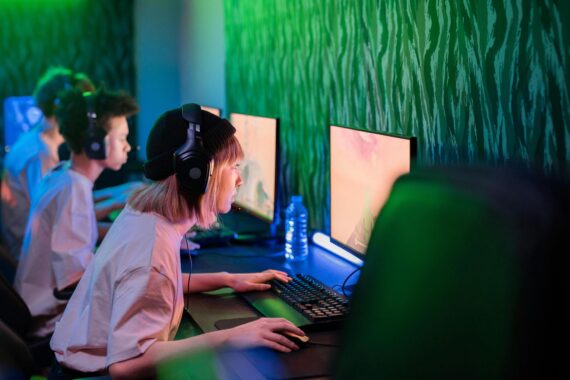From the trembling strings of a suspenseful film scene to the pounding beat that kicks in during a chase, music has always had a way of controlling how we feel. It can raise the heart rate, slow it down, or hold it in a state of anticipation. In the world of gaming, that same power is harnessed to keep players engaged and emotionally invested. Whether the stage is a sprawling digital world or a room filled with flashing machines, music is often the silent force pulling the strings.
The Same Thrill Across Different Worlds
Video games and casino experiences rely on sound for similar reasons. Both use music and audio cues to signal changes, create tension, and celebrate victories. In a narrative-driven adventure, a low, steady note might announce that danger is near, while in a slot game, a sudden fanfare can mean the reels have landed in your favour. Even when playing from home, digital platforms like video gaming platforms or crypto gambling platforms like the various online casinos fast withdrawal sites, they all use layered sound effects and music to keep that atmosphere alive. In the same way that a console gamer reacts to the sound of an approaching threat, someone enjoying slots will hear celebratory jingles and rising beats designed to maintain engagement and create a sense of momentum. These elements are crafted with precision, ensuring they match the tempo of the action unfolding on screen.
Setting the Emotional Temperature in Story-Driven Games
In story-heavy titles, the location matters, and music isn’t just background decoration; it’s part of the storytelling. Composers build tension slowly, letting a soft drone hang in the air while players make their next move. Then, at the right moment, the score changes key or explodes into full orchestration, marking a major turning point. This constant rise and fall keeps players on edge, urging them forward. Without these cues, even the most dramatic scenes would risk feeling flat or rushed.
Step inside a physical casino, for example, and the soundscape is as much a part of the environment as the lighting or décor. Slot machines chirp in syncopated rhythms, low music plays steadily in the background, and the occasional bright burst signals a big win somewhere nearby. This blend of sounds creates a sense of ongoing activity, making the space feel lively and charged. Online platforms replicate this atmosphere with high-quality audio design, where every click, spin, and deal has a tailored sound effect to match the action.
Tension Through Restraint
Sometimes, the most powerful soundtrack is the one that holds back. Horror games often strip away elaborate scores, replacing them with sparse, unsettling tones or even silence. The absence of music in certain moments can amplify unease, forcing players to listen closely for the slightest cue. Game designers have adopted similar techniques; reducing or muting background sounds during a bonus round can make the eventual victory flourish feel even more impactful.
Linking Luck and Release
The pairing of sound with a moment of triumph creates a memory that lingers long after the game ends. Whether it’s the final victorious notes after defeating a game’s final boss or the bright fanfare following a jackpot win, these sounds become part of the emotional impact. Players often remember the exact melody that played during their big moment, replaying it in their minds long after they’ve put the controller down or logged out.
Why the Right Soundtrack Matters
A strong soundtrack does more than fill silence; it shapes how the game feels in real time. The pace of the music can push a player to act faster or slow things down to build anticipation. Carefully chosen sounds can draw attention to an unfolding moment before it’s even visible on screen. Whether the game is about strategy, action, or chance, the right score can make the highs feel higher and the near-misses more intense.
The Lasting Impact of Music in Games of Skill and Chance
Across both video games and casino environments, music works quietly but effectively to guide the experience. It’s the constant presence that can build pressure, ease tension, or celebrate success, all without demanding attention. The emotional cues it delivers are woven into how we remember our time playing, often as vividly as the visuals or storylines. In the right hands, a soundtrack becomes more than just accompaniment; it becomes part of the game’s identity.



Leave a Reply